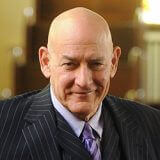
If it wasn’t clear to some observers before, President Trump’s State of the Union address on Tuesday should have made plain the meaning of his 2016 campaign slogan, “Make America Great Again.” It doesn’t have quite the same ring, but the efforts of his administration might just as well be understood as “Making America America Again.”
Put slightly differently, what Trump is actually doing, on a much grander (greater?) scale, is what the late Antonin Scalia did for constitutional law and our legal system. Scalia sought to return constitutional law to a traditional, simpler understanding, where judges eschewed the temptation to refashion the rules of law to fit with trendy cultural notions, and left changes in the actual law to the American people themselves. Scalia’s guiding star was the sovereignty of the American people and this is also what motivates our president. Just as Scalia was, at bottom, a traditionalist, so is Donald Trump. Scalia influenced scores of professors, judges and lawyers, but Trump is after something more—the actual restoration of traditional American culture.

The champions of something different (and the enemies of the president) at some level, clearly understand this, and they understand to an even greater extent how this threatens the power of the culture they and their allies in the academy and in the press have gained. The cry of pain from MSNBC’s Joy Reid, expressed in a much-noticed tweet, was perhaps the most characteristic:
Church … family … police … military … the national anthem … Trump trying to call on all the tropes of 1950s-era nationalism. The goal of this speech appears to be to force the normalization of Trump on the terms of the bygone era his supporters are nostalgic for. #SOTU
— Joy Reid (@JoyAnnReid) January 31, 2018
Unpacking this somewhat garbled tweet, what galls Reid, really, is Trump’s traditional conception of American normality, a set of values that emphasizes duty to God, to country, to family, and to long-established institutions.
Indeed, I believe that Reid might even sense that what motivates Trump is what motivates those of us lawyers who supported the candidate in 2016: that he understood the importance of the founding-era creed, expressed succinctly by Supreme Court Justice Samuel Chase (and endorsed as well by Alexander Hamilton, George Washington and many others), that the American people could not have order without law, could not have law without morality, and could not have morality without religion.
This was understood, by the Constitution’s framers, not as a prescription for oppression, but as the essential basis for a stable, permanent popular government. This was an understanding that flowed from a deep appreciation not only of recent and ancient history, but of the most profound current political thought of the great 17th- and 18th-century philosophers such as Montesquieu, Hume, and Locke—thoughts expressed in the very structure of our Constitution itself.
As readers of the Federalist are aware, our system of separation of powers and dual state and federal sovereignty, was designed to preserve self-government and save us from the overreach of a Leviathan state. Joy Reid, the Obama administration, and the modern Democratic Party in general, represent an ideology that has rejected all of this. Instead, they favor the centralization of power in the federal government, judicial legislation, and governments committed to redistribution rather than to the protection of basic property rights. They prefer to eschew our traditional values of decentralization of government as well as deference and respect for the military and for law enforcement.
Reid is quite right to pinpoint where the nation went astray: it was the era that followed the 1950s. Beginning in the colleges in the 1960s, and in reaction to the Vietnam War and Watergate, traditional institutions of this country came under withering attack, as the thought of Marx, Marcuse, and Derrida seduced countless undergraduates and their instructors. Identity politics, the psychology of self-actualization, attacks on capitalism itself, and the purported virtues of European socialist state-style redistribution became so dominant that it was difficult to conceive of a return to tradition as anything but a delusion about the nature of reality itself. This culminated in views like those of Reid, and in the notion expressed by no less an authority than Earl Warren, the former chief justice of the United States, that “you can’t turn back the clock.”
Still, as C.S. Lewis once explained, that notion itself is absurdly flawed, as, in fact, you can turn back the clock, and when it is failing to give you the correct time, you should. This is what President Trump has clearly discerned, this is why he was able to win over (geographically speaking, at least) the great mass of the country, and this is why, according to at least some of the polls, 75 percent of the American people who watched responded so well to his State of the Union Address. It is not nostalgia for a bygone era which the president promotes. It is, instead the return to timeless truths.

